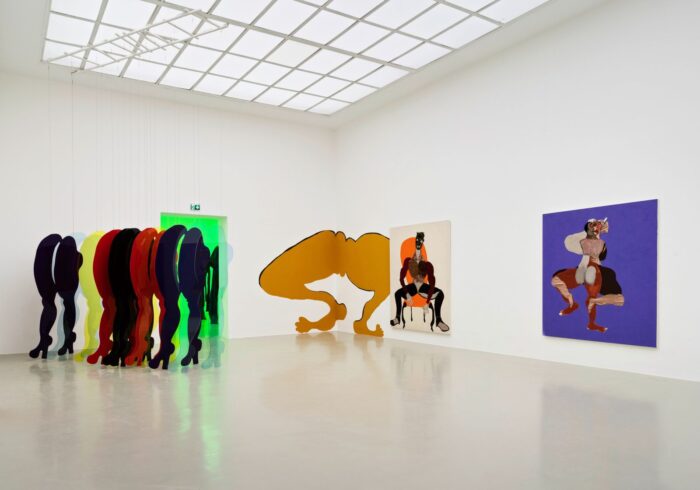
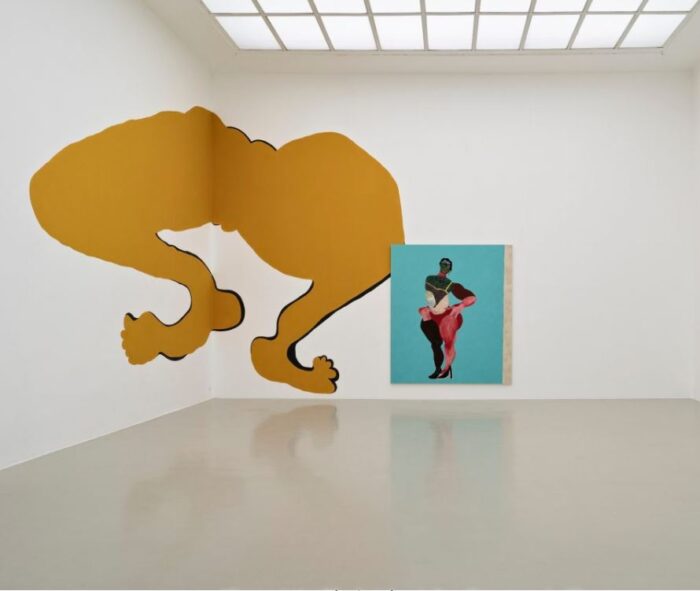
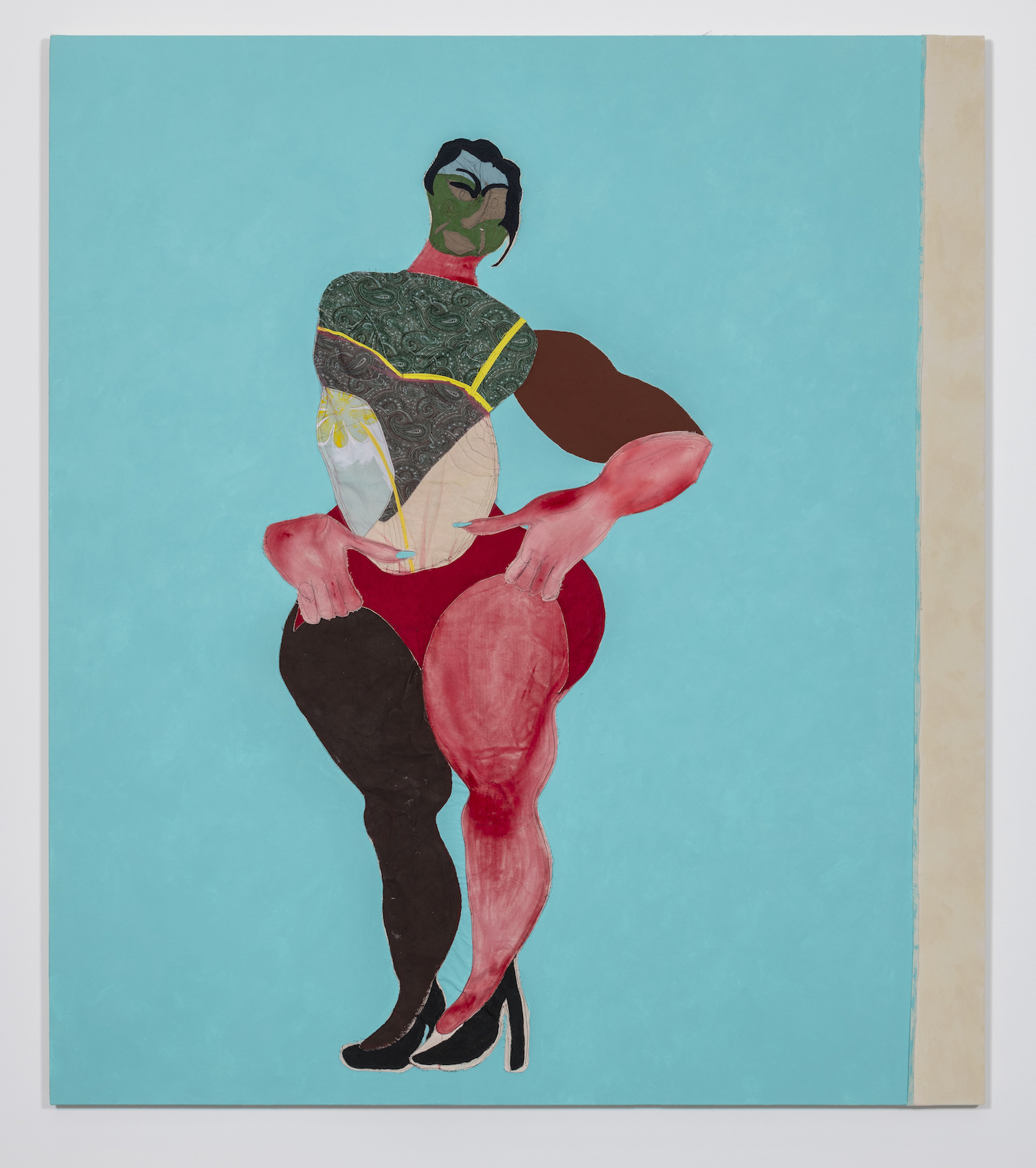
courtesy of the artist and Pilar Corrias, London
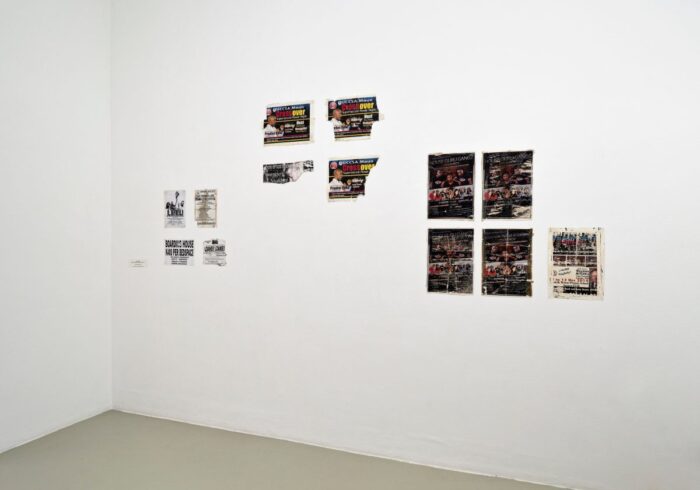

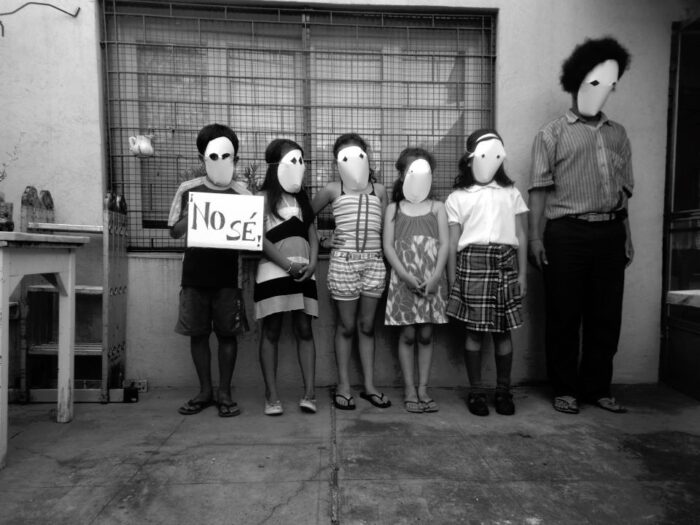
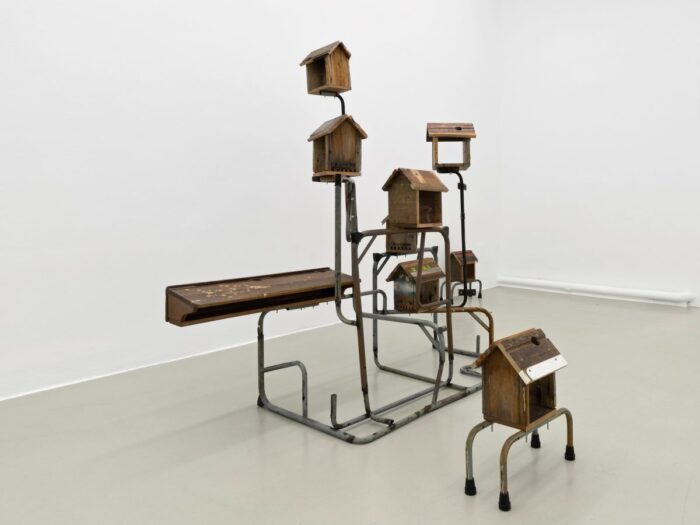

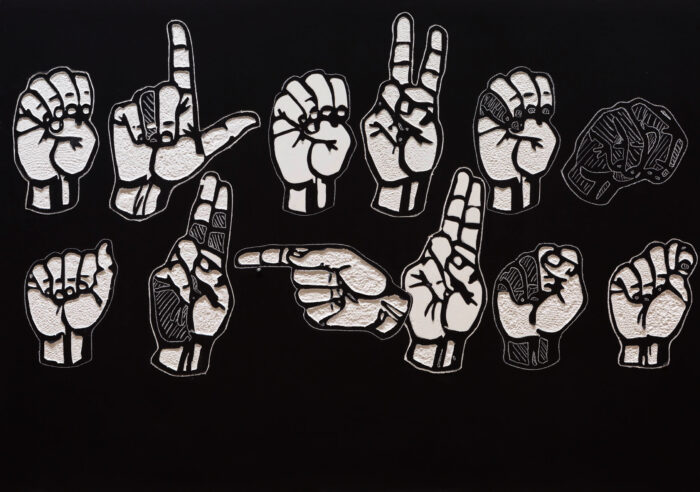
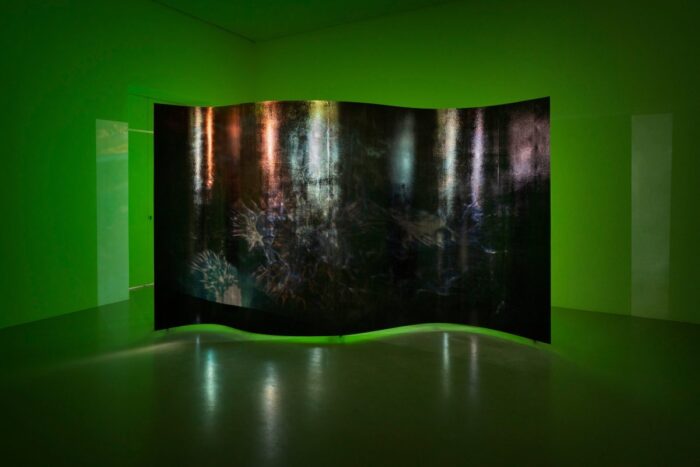
“Beyond the Black Atlantic” at Kunstverein, Hannover
February 15 – April 26, 2020 (NOT OPEN DUE TO COVID-19)
Images courtesy of Kunstverein Hannover.
Artists: Sandra Mujinga (b. 1989, Goma, Democratic Republic of the Congo), Paulo Nazareth (b. 1977, Governador Valadares, Brazil), Tschabalala Self (b. 1990, New York City, USA) and Kemang Wa Lehulere (b. 1984, Cape Town, South Africa).
PR: Beyond the Black Atlantic« showcases the work of four young artists who work in various media to address aspects of the Western, Eurocentric notion of »Blackness«, which is often freighted with prejudice. Identity- determining factors such as gender, descent and sexual orientation are examined from various perspectives with the aim of raising new awareness about how the Black community is more widely perceived in society.
British sociologist Paul Gilroy coined the term »Black Atlantic« in 1993 with the publication of his book The Black Atlantic: Modernity and Double-Consciousness, a work that describes both the various outside cultural influences that have impacted the diaspora and the changes it has affected. Gilroy describes the culture of the »Black Atlantic« as stemming from a confluence of African, American, British and Caribbean cultures. The meeting of those influences has its origins in the history of the slave trade, for which the crossing of the Atlantic constituted an important trade route. As such, the »Black Atlantic« contains aspects of both presumably European and African origin.
The idea of a »hybrid culture« that transcends national borders has long since been established and remains a hotly debated topic today.
This group exhibition presents four different vantage points on the notion of a global Black identity while simultaneously distancing itself from the historical approach to the »Black Atlantic« that gives the exhibition its title. »Beyond the Black Atlantic« looks to the younger generation of artists for a contemporary take on this still highly relevant subject area.
With Sandra Mujinga (b. 1989, Goma, Democratic Republic of the Congo), Paulo Nazareth (b. 1977, Governador Valaderes, Brazil), Tschabalala Self (b. 1990, New York City, USA) and Kemang Wa Lehulere (b. 1984, Cape Town, South Africa), Kunstverein Hannover is showcasing work by artists with a strong international profile, taking a selection of recent works to present just four of countless perspectives on the polymorphic Black community.
Multimedia artist Kemang Wa Lehulere describes both his individual experiences as a Black artist and a historical perspective on the wounds caused by apartheid in South African society. Part of this includes critically examining how Black artists have historically been classified in the Western influenced art canon. Wa Lehulerere’s work exposes traces of racism and injustice that still exist today (sometimes latently), even where they were and continue to be widely ignored.
Sandra Mujinga was born in the Democratic Republic of Congo and grew up in Norway. She lives and works in Berlin and Oslo. Questions of identity emerged early on as the result of growing up in a white society, leading her to develop an array of multimedia protective measures against identity-political attributions. Protagonists in her works are alienated beyond recognition, whether through performances or sculptures.
Tschabalala Self explores images of Black people in the global media landscape in general and in American society in particular. Self’s multi-media panel paintings show shapes stereotypical of Black female bodies. Excessively sexualized and instrumentalized notions of these same bodies are part of the artist’s own experience; the works’ shift of the gaze from an othering perspective to a subjective, internal one exposes the first as both entrenched and clichéd, casting imposed attributions back on the viewer.
Paulo Nazareth addresses historical events under colonialism and slavery and processes them in performative works, including his walk from Johannesburg to Lyon (about 11,500 km), a former slave route. He documents journeys like these on film and in photographs, enabling the presenta- tion of his works.
A varied supporting program has been developed to shed critical light on the underlying topic, which remains highly relevant today. One example is Kunstverein Hannover’s hosting of the »Summer School« organized by Leibniz University, a one-week conference entitled »Anthropology and Contemporary Visual Arts from the Black Atlantic«.
The exhibition has offered us the opportunity to invite and solicit lectures from influential voices and important contributors of reflections on contemporary art practice from African perspectives: Dr. Clémentine Deliss pursues in her work the thematic connection between contemporary art and ethnology. She was artistic director of the »africa95« project at the Royal Academy of Arts in London until 1995 and also directed the Museum of World Culture in Frankfurt until 2015; she will speak on March 25. We also have Dr. Yvette Mutumba (curator of the 10th Berlin Biennale) and Julia Grosse (art historian and journalist) who will speak on April 22 about their magazine »Contemporary And (C&)«, which specifically reflects African perspectives in the global art context.
Koki – Kino im Künstlerhaus will also be hosting a diverse film program on the »Black Atlantic« theme for the duration of the exhibition.
The exhibition is supported by the Lower Saxonian ministry for science and Culture as well as by the German Federal Cultural Foundation.
